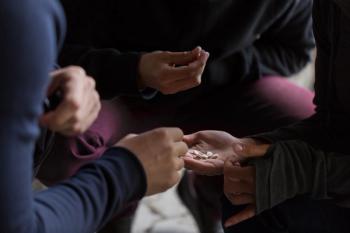
How culinary knowledge can impact physical, mental and environmental health
In this Contemporary Pediatrics interview, Michelle Loy, MD, FAAP, recaps her session, "Culinary Medicine: Using Food for Physical, Mental, and Environmental Health" presented at the 2023 American Academy of Pediatrics National Conference & Exhibition in Washington DC.
Interview transcript (edited for clarity):
Contemporary Pediatrics:
What was the topic of your session at AAP 2023, and can you break it down?
Michelle Loy, MD, FAAP:
There were 3 sort of sections and the first section we covered the role of culinary medicine in medical education and patient care and also for self care. The second main objective was related to describing the mental and physical benefits of anti-inflammatory diet.
So, we went through vegetables, fruits, whole grains, beans, seeds, legumes, things like that, spices, and we had a demonstration table with a whole bunch of spices from cumin, coriander, ginger, tumeric, basil, fresh basil, oregano, mint, coriander, schizandra, hibiscus, all kinds of tea so people could actually come up and take a look.
And our third objective, I think this was the one where people really resonate the most with was giving practical tips, things like how do you talk to your patients about nutrition, different age groups, patients who are facing food insecurity. I shared a helpful resource called weak on WIC, which gives a bunch of recipe,s gives the nutrition facts, gives the cost breakdowns, like less than $1 per meal. Using the lists of foods that are available on WIC, and this is 3 meals a day plus snacks, we're talking about like french toast, like banana ice cream, like good food.
It's really important when you talk about nutrition that you do it in a wise manner. You don't trigger some [eating disorder], we're facing a crisis with disordered eating orthorexia, anorexia, bulimia, you know, binge eating disorder, arfid, you know, EOB, I see all kinds of feeding type situations. So it's important that we approach it in a very wise manner. And so things like adding, rather than restricting.
There's a program that is in actually a bunch of work centers, and also in New York City where they use a puppet and children and caregivers prepare food together, and they use the puppet and a magnifying glass and look at like, bumpy squash and smooth plums. And when they play around with the food, they are much more engaged and much more willing to try new foods.
So, it's not about restricting not saying, you know, you can't eat this until you finish all your broccoli, but it's like adding rather than restricting. Engaging them in food shopping with you, even doing things like chopped, like give them a bunch of, you know, foods and let them come up with their own dish. If they make it, they're going to try it. And you know, that's another way of doing it.
Then I talked also about some culinary ways that you can share, you know, talk to patients if they're if they're cooking. So, you know, combiningavocado and some greens increases lutein intake by like 7 times. Or if you're going to like barbecue something and it's going to release heterocyclic amines, which aren't so good then either, you know, marinate with some rosemary or some vinegar, and that helps mitigate those effects. Watermelon, if you leave it out, it increases lycopene intake level. Of course, we've had hot summers so you could watch it doesn't explode. But tumeric, we've known this forever, you need a little bit of fat and black pepper to help with the absorption.
Contemporary Pediatrics
How can the pediatrician's own experiences place a role?
Loy:
Personally, many of them have a stressful life as a pediatrician or going through health things. And they've, you know, they've noticed big changes in themselves.
And in the beginning, when I taught medical education, I didn't even mention this here, but represented some different ways that where culinary medicine being brought into medical education both at a medical student level to resident and there are actually studies showing that if they engage in these education opportunities, it affects them personally, in a good way and also as their growth as a clinician where they are much more effective in counseling.
And a lot of studies showing that many people want nutrition from their physicians, but they aren't getting it. If the physician brings up like 70% or 80% of them will make changes. Yet, about 80% of physicians don't feel comfortable talking about it.
And so, I think it's important just to to bring awareness to that. So many of them, you know talked about their own experiences making changes and their are benefits there. Some had questions about how to do this with, you know, young children, their children, they want to feed them really healthy foods, but then what happens when they go to a birthday party and this is where we talked about how, you know.
And this has been my experience as a clinician and also as a parent, you know, lead by example, and if most of the time they're getting good, good, good food at home, when they go somewhere else, they come back, they don't feel so good. And they'll they'll figure it out by themselves. Like, yeah, I don't really, you know, want to want that. I think okay, you know, but it's not because we said it's not okay.
Newsletter
Access practical, evidence-based guidance to support better care for our youngest patients. Join our email list for the latest clinical updates.







